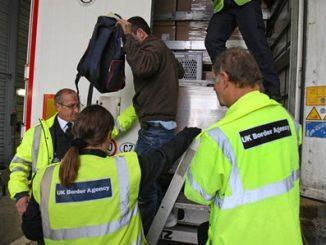
Hauliers will stop bringing goods into the UK if the government ploughs on with proposals to levy fines of £2,000 per stowaway found in vehicles, regardless of the security measures taken, Logistics UK has warned.
A consultation into the controversial plans ended yesterday (6 May) with ministers wanting to overhaul the current clandestine civil penalty regime.
The proposals include increasing the maximum £2,000 penalty; introducing an additional new penalty to fine hauliers for not securing their vehicle, regardless of whether an illegal migrant was found on board or not; levying penalties on drivers and firms where a migrant is discovered, regardless of the load security measures used and reviewing the accreditation for hauliers who are repeatedly found in breach.
“It is unacceptable that the criminals responsible for people smuggling are not always adequately penalised for their harmful and life-endangering actions,” the consultation said.
“To stop the deaths, we must break the business model of the people smugglers.
“To do so we must better deter illegal migration and strengthen the protection of our borders.”
Read more
- Immigration service detains 18 stowaways after new refrigerated truck incident
- Transport lawyer slams police decision to treat HGV drivers found with stowaways as suspects
- Brexit will lead to “extra stream of stowaways”, new report warns
But Logistics UK criticised the government’s plans, describing them as “unrealistic” and said responsible operators and drivers were also victims.
Chris Yarsley, the group’s policy manager, said: “Logistics UK strongly opposes the government’s proposal to expand the existing penalty scheme to any haulier found with an illegal migrant in their vehicle, regardless of their compliance with load security standards or accreditation schemes.
“When an individual takes all reasonable measures to mitigate the risk of illegal entrants, it is unfair to deprive the vehicle operator of any defence and simply issue an automatic penalty, the cost of which will be prohibitive for many smaller operators.
“The detection systems used in ports are not themselves fully effective in locating people hidden on board a vehicle; it is unrealistic to expect hauliers and drivers, who are neither trained security staff nor immigration officials, to outperform government agencies.”
Yarsley added: “These proposals could have a significant impact on supply chain operations by deterring businesses from bringing goods into the UK, in addition to reducing the attractiveness of HGV driving as a career option, at a time when the industry is suffering deeply from a worker shortage.”
The Home Office said it was currently analysing feedback to the consultation.













